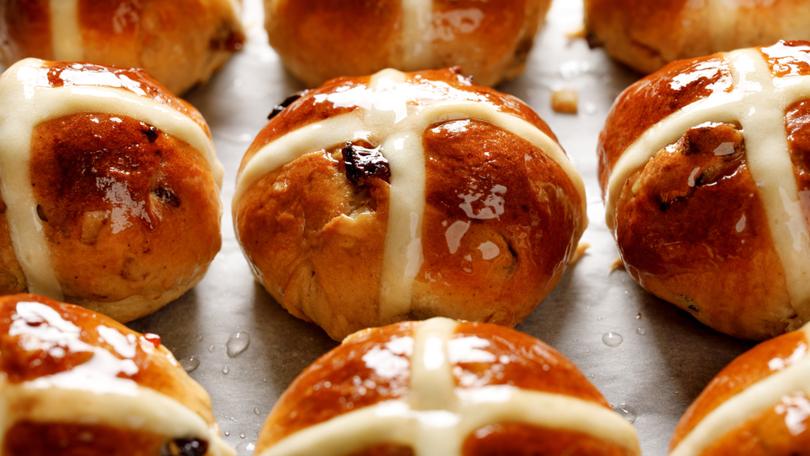Shrinkflation: The ten latest grocery items to have shrunk in 2024 according to Choice
Don’t expect your hot cross buns to be as juicy this Easter. The popular holiday treats are the latest victims of supermarket shrinkflation.

Don’t expect your hot cross buns to be as juicy this Easter.
The popular holiday treats are the latest victims of supermarket shrinkflation according to consumer group Choice.
Acting on public tip-offs and analysis of its data, the group has compiled a long list of new grocery items that have shrunk in size, but not price since their last investigation in 2022.
Sign up to The Nightly's newsletters.
Get the first look at the digital newspaper, curated daily stories and breaking headlines delivered to your inbox.
By continuing you agree to our Terms and Privacy Policy.The top ten
- Coles’ Mighty Grain packets have dropped from 560g to 495g but remained at the same price of $4.50.
- Coles’ cornflakes shrank from 475g to 440g and increased 20 cents in price to $2.10.
- Woolworth’s Max Charge cereal has dropped from 560g packs to 495g and remained at the same price of $4.50.
- Community Co’s traditional hot cross buns shrunk from 480g to 450g. They have also gone up in price, from $4.00 to $4.50.
- Community Co’s chocolate hot cross buns also shrunk from 480g to 450g and went up in price from $4.00 to $4.50.
- Woolworths’ original salted corn chips have dropped from 200g to 175g and remained at the same price of $2.30.
- Red Rock Deli’s range of deli-style dips have shrunk from 150g to 135g.
- McVities’ Go Ahead range of “forest fruit” biscuits have dropped from 218g to 174g and remained at the same price of $4.40.
- McVities’ digestive biscuits have gone from 400g to 355g, while the price has remained at $4.40.
- Jif’s Power & Shine Bathroom cleaner has gone from 700ml for $2.50, to 500ml for $4, meaning the cost of each 100ml has increased by over 122%.
What exactly is shrinkflation?
Shrinkflation is where manufacturers charge the same or even more for smaller servings, betting on most consumers not noticing the difference.
And with rate rises and cost-of-living pressures hitting many households hard, these reductions are offering less and less value for money.
But, is it illegal?
“Unfortunately, the practice of shrinkflation is not illegal,” explains Bea Sherwood from CHOICE.
“In France, Carrefour supermarkets recently made the decision to warn consumers when products had shrunk in size and cost more, but there is nothing requiring supermarkets here to disclose shrinkflation,” she says.
“Supermarkets should be required to let consumers know when a product has changed in size and value, so that people can make informed decisions when they do their shopping,” Sherwood says.
How do the manufacturers justify it?
Coles and Woolworths both told Choice that the change in sizes of their cereals and chips were requested by suppliers — and that they had not profited or benefited financially from these changes. They said any cost relief was being retained by the suppliers, who were facing rising production costs. However, this has not been confirmed by the suppliers themselves.
Community Co owner Metcash told Choice it recently moved the production of its hot cross buns to a different manufacturer and its capabilities had dictated the size. IGA, its parent company, also said prices for certain ingredients added to the product’s price hike.
Red Rock Deli dip maker Obela told Choice the cost of producing the products has gone up “substantially”.
While Unilever (Jif Power & Shine Bathroom cleaner) and United Biscuits (McVities) didn’t respond to Choice.
